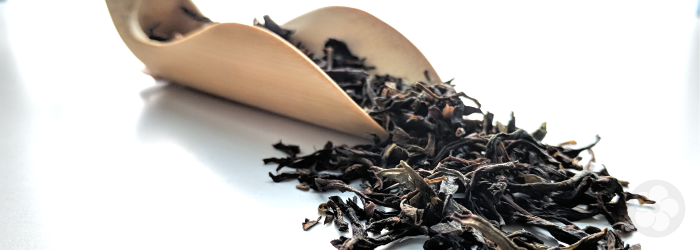Defining High Quality: What Makes a Good Tea?

With thousands of years of history spanning the entire globe, it’s safe to say that standards for high quality tea are not always consistent. Tastes have changed over time, as tea has gone from an herbal medicine to an imperial tribute to a global commodity. Tastes also vary from region to region, especially when those areas are isolated from each other - tea preferences in Japan and India have both diverged drastically from developments in China over time.
Today, tea connoisseurs use many measures of quality to compare diverse styles against each other. Harvest date and leaf size are the most common signifiers of overall quality. Limited spring leaves fetch higher prices than plentiful summer crops, and leaves that are chopped or broken in processing are usually the least valued.
See the difference with three grades of black tea >>
But this isn’t an accurate way to assess all teas. Tea gardens at high elevations may not harvest their first spring crops until May or June. Even the highest quality green teas from Japan are often chopped or broken. Every rule has exceptions, and distinctions of quality vary dramatically from style to style.
Personal preferences can also negate strict guidelines. While one person enjoys the delicate, creamy texture of an early harvest green tea, another may prefer the full-bodied flavor of a chopped black tea. Variety, provenance, harvest date, and craftsmanship can give you an idea of where a particular tea might fall on the flavor spectrum, but this information means little without the context of experience.
Ultimately, quality is subjective, but as professional tea buyers, we have three rules that define good tea across all categories. For us, high quality tea is:
1. Complex in flavor, with a long finish.
To hold our interest, tea has to taste like more than just vegetable broth. The best teas have the most complex flavor profiles, with natural nuances that ebb and flow on the palate through multiple infusions and linger in the back of the throat long after the tea is swallowed.
Learn how to taste the finish of a tea >>
2. Easy to brew, lacking bitterness no matter how it is prepared.
No matter how good a tea tastes the first time, a repeat performance is the real mark of quality. A tea that is fussy to brew is a tea that is hard to enjoy. The best teas have more flavor than bitterness, ensuring that they taste as good in a thermos at the end of a long commute as they do in a gong fu tasting.
Find all the ways to brew loose leaf tea >>
3. Sustainably grown, without the use of harmful chemicals.
Chemical fertilizers, pesticides, and herbicides are a shortcut to high yields that sacrifice flavor by speeding growth and reducing biodiversity. The best teas are grown with natural methods, perfected through trial and error over a time period longer than written history.
Find out what we look for at a sustainable tea farm >>
These three principles guide every step of our sourcing process. Get a sneak peek at how we shop for teas in this video:
How do you define “good tea”? Let us know in the comments below!
Sign up for our newsletter to get blog updates in your inbox!







Comments on this post (0)